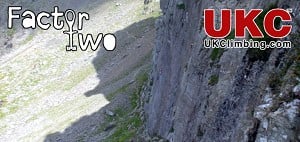In reply to Me:
You need search academic articles using an appropriate search engine if you want to find studies. Google Scholar isn't a bad start.
If you think about it, it's very hard to work out whether there is a causal link between people going climbing as youngsters and getting good grades. You'd have to compare groups of people who were otherwise the same apart from the climbing (compared to what - doing nothing? doing other sports?), i.e. you'd have to control for a lot of variables. A statistician (not me) could tell you how feasible that would be. It's much more likely that you'd find a positive correlation, but the reason is that people who get taken out climbing as kids are brought up in a culture that values education and engenders high expectations.
Putting forward evidence-based reasoning for this sounds very much like trying to dig up evidence for something you want to be the case. This is isn't scientific, doesn't get you anywhere near the truth, but it's exactly how policy decisions are made, day in, day out.
I would suggest looking a bit more broadly than trying to demonstrate a direct, causal link. I.e. providing kids with experiences that are really fun, fulfilling, novel and stimulating gets them 'on side', more engaged in school, gets them to see each other (and maybe teachers) in a different light and has a broad positive impact. Which can only help grades in the classroom (but not directly). There should be research out there on something that's comparable, but probably much wider than just climbing. Any attempt to try to show a direct causal link between pounds spent on outdoor ed and league table positions is just going to be manufactured and unconvincing.
Indeed, it's rather sad that people in education are being taught to think in this narrow, linear, fashion; after all, it's kids lives we're talking about, not rows on a spreadsheet.









